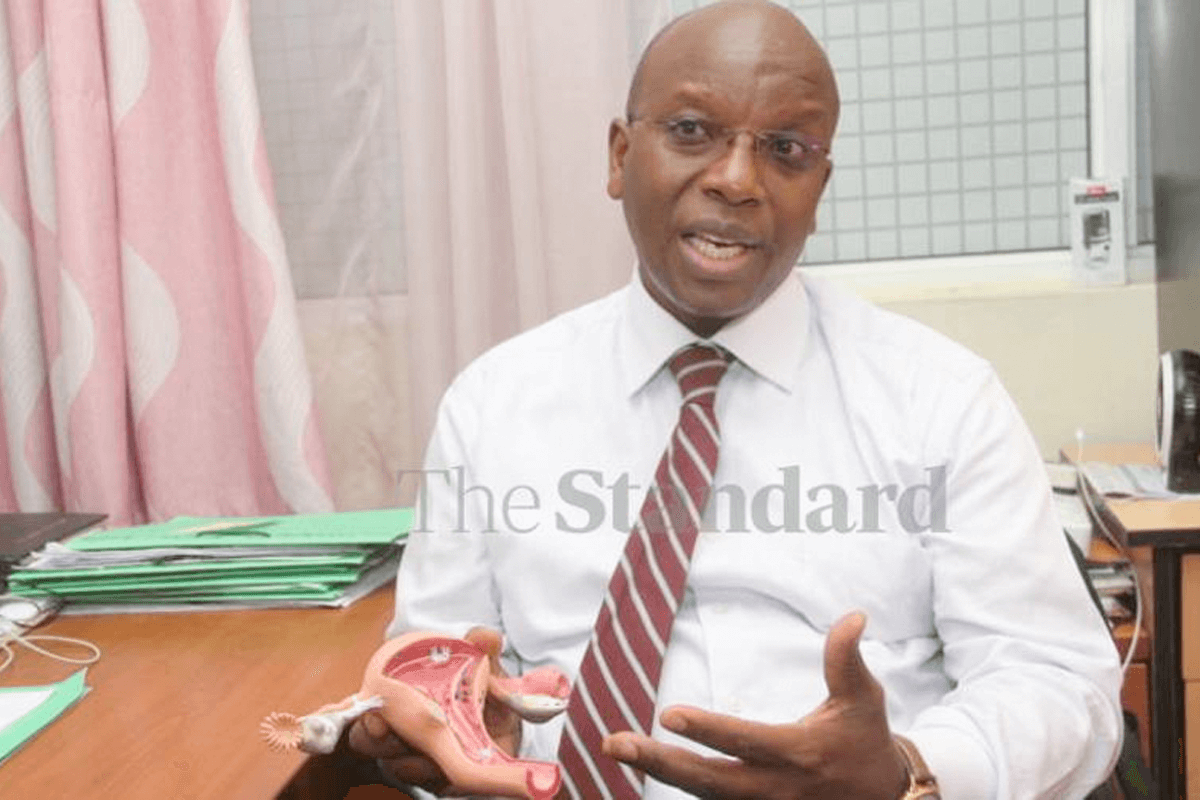
Image: KOGS President Kireki Omanwa
It is important that victims of rape and defilement – who consequently fall pregnant – are accorded medical abortion care by medical practitioners, when and if they make such a request.
This is the position of the Kenya Obstetrical and Gynaecological Society (KOGS) – an organisation of about 500 Kenyan ob-gyn specialists. In a position paper dated 8 May, they said: “As obstetricians and gynaecologists practising in Kenya, we interact with women on a range of reproductive health issues on a daily basis,” says KOGS President Kireki Omanwa. “Our voice on this subject matter is important. The stand we have taken is informed by our laws, policies, and most importantly, medical evidence gathered from practising obstetrics and gynaecology. As an organisation that operates as a national champion in sexual and reproductive health and rights, we recognise the need to provide a position statement on the subject matter to inform and guide efforts towards the reduction of maternal morbidity and mortality arising from unsafe abortion.”
The doctors note that some medical personnel, influenced by personal, cultural, or religious beliefs, may decline to provide legal abortion services. To which they say: “Conscientious objection is an individual decision that must be presented in writing and be exercised consistently. The right to conscientious objection is an important freedom but those who invoke it must show the same respect for others’ rights and freedoms. Abortion is a medical issue: it is about the health and wellness of a woman. If a practitioner is unable and unwilling to provide a desired medical service given his/her conscientious objection, he/she is obligated to make a referral in good faith to a non-objecting physician in a timely manner.”
The statement continues: “Unsafe abortion as well as abortion-related stigma and criminal penalties put women’s and girls’ lives and health at risk which jeopardises and contravenes protected rights under various legal frameworks.
“In emergency situations, to preserve life or physical or mental health, practitioners must provide the medically indicated care of their patients’ choice regardless of the physician’s personal objections. The care must be provided urgently and respectfully without punitive prejudice and biased behaviour.
“The best interests of pregnant adolescents are paramount. Their views must always be heard and respected in reproductive health decisions.”
Most recently, in March 2022, the High Court in Malindi ruled that abortion and abortion-related services are part of the reproductive health rights the Kenyan constitution protects.
Giving his judgement on petition E009 of 2020, Justice Reuben Nyakundi declared that criminalising abortion under the Penal Code would be an impairment to the enjoyment of women’s reproductive health rights. Justice Nyakundi also directed Parliament to enact laws and policies that align with what the constitution envisages: that a woman may need medical abortion services.
Article 14 (2)(c) of the Maputo Protocol, which Kenya ratified, states the following: “Parties shall take all appropriate measures to: protect the reproductive rights of women by authorising medical abortion in cases of sexual assault, rape, incest, and where the continued pregnancy endangers the mental and physical health.”
SOURCE: Standard Media Kenya, by Gardy Chacha. 23 May 2023 + PHOTO: Samson Wire, Standard



